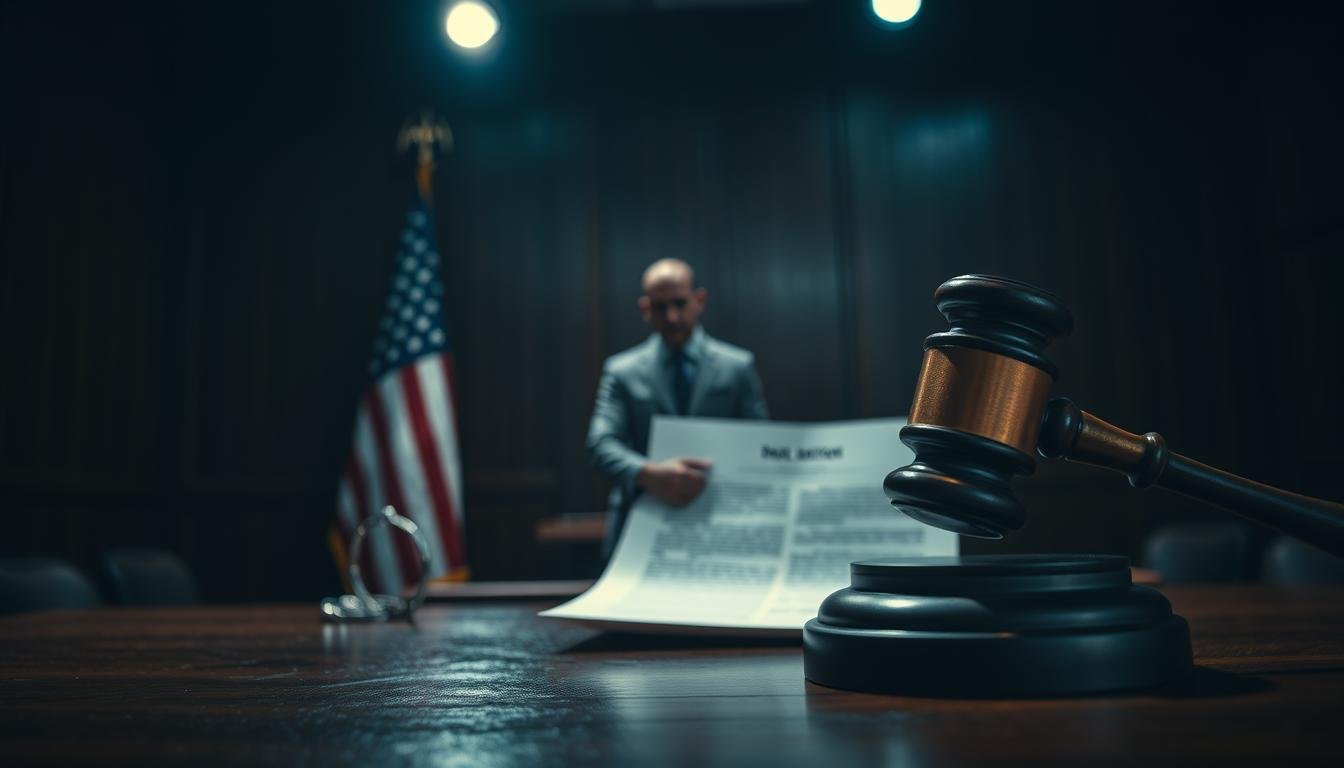Last updated on December 5th, 2025 at 07:15 am
What Rights Do Felons Lose in New York? Being a felon in New York means you need to know how a felony conviction affects you. It impacts many parts of your life. You might struggle to find a job or even vote.
It’s key to understand these effects. This knowledge helps you make better choices for your future.
Learning about your felon rights and the effects of a felony can guide you. It helps you work towards becoming a productive member of society again.
Contents
- 1 Understanding Felony Convictions in New York State
- 2 What Rights Do Felons Lose in New York: A Comprehensive Overview
- 3 Employment and Housing Challenges for New York Felons
- 4 Restoration of Rights and Rehabilitation Options
- 5 Conclusion: What Rights Do Felons Lose in New York?
- 6 FAQ
- 6.1 What rights do I lose when I’m convicted of a felony in New York?
- 6.2 Can I vote if I’m on probation or parole in New York?
- 6.3 How do felony convictions impact my employment opportunities in New York?
- 6.4 Are there any rehabilitation programs available to help me reintegrate into society after a felony conviction in New York?
- 6.5 Can I restore my right to possess firearms after a felony conviction in New York?
- 6.6 How do I go about restoring my rights after a felony conviction in New York?
Understanding Felony Convictions in New York State
It’s key to know about felony convictions in New York. These can come from violent crimes, theft, or drug offenses.
Felonies in New York are split into classes. This system shows the possible penalties for each felony type. [What Rights Do Felons Lose in New York?]
Classification of Felonies
New York has five felony classes: A, B, C, D, and E. Class A is the most serious. The class depends on the crime’s severity and danger to society.
| Felony Class | Potential Sentence | Examples of Crimes |
|---|---|---|
| Class A | Life imprisonment | Murder, kidnapping |
| Class B | Up to 25 years | Arson, robbery |
| Class C | Up to 15 years | Burglary, certain drug offenses |
| Class D | Up to 7 years | Theft, certain drug offenses |
| Class E | Up to 4 years | Some drug offenses, forgery |
The penalties for felonies in New York can be harsh. You could face long prison terms and big fines. Knowing this is vital if you’re charged with a felony. [What Rights Do Felons Lose in New York?]
What Rights Do Felons Lose in New York: A Comprehensive Overview
If you’re convicted of a felony in New York, knowing what rights you lose is key. A felony conviction can change many parts of your life. This includes your personal freedoms and job opportunities.
One right you lose right away is the right to vote while incarcerated. New York State gives back your voting rights when you’re released from prison. But knowing you can’t vote while in prison is important for those who want to vote.

Another big right you lose is the right to possess firearms. Both federal and New York State laws say you can’t own or have guns if you’ve been convicted of a felony. You can only get your gun rights back through legal steps. [What Rights Do Felons Lose in New York?]
- Certain professional licenses may be taken away or not given because of a felony conviction.
- Felons might find it hard to serve on a jury because they’re often not allowed.
- Also, holding public office might be off-limits for people with felony convictions.
Knowing about these lost rights is the first step to dealing with a felony conviction. It’s important to understand these changes. This way, you can plan your future and look into getting some rights back when you can.
Employment and Housing Challenges for New York Felons
Felons in New York face big hurdles when trying to get a job and a place to live. Background checks are a major obstacle. These checks are common in job and housing applications, making it hard for felons to fit back into society.
Background Checks and Their Impact
Background checks can really affect a felon’s job and housing chances in New York. Employers might see a felony as a risk. Landlords might also turn down applicants with felonies, making it tough to find a place to live.
The impact of background checks is clear in several ways:
- It’s hard to find jobs because employers are cautious.
- Felons have fewer housing options because of landlord checks.
- Stable work and home life are key to rehabilitation, but are hard to get.
| Challenge | Impact | Potential Solution |
|---|---|---|
| Employment | Limited job opportunities | Job training programs |
| Housing | Restricted housing options | Housing assistance programs |
| Rehabilitation | Increased difficulty in rehabilitation | Support services for felons |
To tackle these issues, different approaches can help. For example, job training can give felons new skills. This makes them more appealing to employers. Housing help can aid in finding and keeping a stable home.
Understanding and tackling the hurdles of background checks can help felons in New York on their path to rehabilitation. [What Rights Do Felons Lose in New York?]
Restoration of Rights and Rehabilitation Options
If you’re a felon in New York, knowing your options is key to rebuilding your life. The state offers many rehabilitation programs. These help people with felony convictions get back into society.
These programs include counseling, education, and job training. Counseling helps you deal with issues that led to your conviction. Education and job training give you skills for work and community involvement.
Legal Processes for Restoring Rights
Getting back certain rights after a felony conviction involves legal steps. For example, you might be able to vote again. In New York, people with felony convictions can vote after they’re released from prison, even on parole. But, if you’re still in prison, you can’t vote.
- Certificate of Relief from Disabilities: This certificate can help you regain rights, like applying for professional licenses.
- Executive Clemency: The governor can grant clemency, which might pardon your conviction or shorten your sentence.
To get your firearm rights back, you must go through a legal process. This might mean asking the court. It’s smart to talk to a lawyer to understand what you need to do and how likely you are to succeed.
Besides legal steps, joining rehabilitation programs can really help you fit back into society. By doing both, you can work towards getting your rights back and starting over.
Conclusion: What Rights Do Felons Lose in New York?
Knowing what rights you lose as a felon in New York is key. It helps you understand the legal system better. You’ll see how a felony can affect your job and where you can live.
Learning about the effects of a felony and how to get your rights back is important. New York offers ways to help people with felonies become part of society again. [What Rights Do Felons Lose in New York?]
As you move ahead, focus on getting better and using the resources to get your rights back. This way, you can build a better future. You’ll be able to use your rights in New York fully, ending your journey on a positive note.
See Also: Exploring Pharmacy Tech Options for Felons in California
FAQ
What rights do I lose when I’m convicted of a felony in New York?
When you’re convicted of a felony in New York, you lose some rights. You can’t vote while in prison, own guns, or hold certain jobs.
Can I vote if I’m on probation or parole in New York?
A: Yes, if you’re on probation or parole in New York, you can vote. But, if you’re in prison, you can’t. [What Rights Do Felons Lose in New York?]
How do felony convictions impact my employment opportunities in New York?
Felony convictions can hurt your job chances in New York. Many employers check your background. This might stop them from hiring you.
Are there any rehabilitation programs available to help me reintegrate into society after a felony conviction in New York?
Yes, New York has programs to help you after a felony. They offer counseling, education, and job training. These help you fit back into society.
Can I restore my right to possess firearms after a felony conviction in New York?
In New York, you might get your gun rights back. But, it’s a complex process. You might need a court order. [What Rights Do Felons Lose in New York?]
How do I go about restoring my rights after a felony conviction in New York?
To get your rights back in New York, look into legal options. You can apply for a Certificate of Relief from Disabilities or a Certificate of Good Conduct. [What Rights Do Felons Lose in New York?]

Van Maldonado, born in California, holds a degree in Criminology and Police Science. Currently serving as an investigative officer at a local police station, he spends his leisure time writing insightful content for FelonScope.com.

